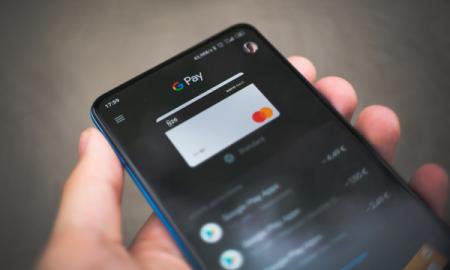With digitalization at its peak, startups are putting a lot of emphasis on creating their websites and mobile apps for their brand. But the pertinent question is which of the two will make your business flourish?
The popular notion doing the rounds is that mobile technology is going to rule in the years to come. But, that doesn’t imply that the web is dead. Let’s elucidate on why having a website and mobile app is ideal to fly your startup business.
1. Having a platform-first product
If you have a non-technical business that requires the support of technology (think Uber and Airbnb), whether to create a functional website or an app first might prove to be a tough call. The answer to this is probably related to your understanding of your target audience.
How well do you think you know your target consumers? How are these specific set of people carrying out the tasks that you want to simplify? When you find the right answers to these questions, you’ll be able to decide whether your product requires a web-first or a mobile-first approach.
Even if you are aiming to target one platform first, it doesn’t mean you can bypass the other. The other platform becomes your value addition. An appropriate example of this would be Instagram & Assignmenthelp, which was a mobile-first service that presented its responsive web interface at a later stage.
2. The aspect of cost-effectiveness
Creating an efficient mobile application tends to be more expensive than upgrading your website to support the mobile view. In fact, it’s specifically expensive for startups to create a good mobile application. Also, mobile apps come with platform dependency, so you need to select a platform that you think will be suitable for your mobile app, like iOS (for iPad and iPhone), a Windows Mobile App, or an Android app. You may also choose to make your mobile apps compatible with different platforms, but only if you have the budget to carry out.
However, a responsive website performs better across every platform. So, you would require a substantial budget to attract your consumers on all of the platforms, otherwise investing a hefty sum would be pointless. But if you can’t afford to invest a hefty sum (which is the case for most startups), then launching the website first will be a good idea.
“If there is a steady flow of traffic from Google Search or even from other search engines, a website is often considered to be a more convenient option as opposed to a mobile app”, opines Nathan Hayes, an expert on IT assignment help from MyAssignmenthelp. Initially, developing an app for every target audience might turn out to be considerably expensive, and the necessities like frequent updates and also app store permissions often put off the consumers from using the app.
However, in case of a website, the preliminary expenses somehow offsets the less maintenance cost over a particular period of time. The moral of the story is, if mass marketing is the ultimate objective, then viewing the website can be a cheaper option any day.
3. User-friendliness of your service
Most of the websites come with a user interface that’s static and navigational. But mobile apps tend to present an interactive user interface. A responsive web design approach, on the other hand, eliminates issues regarding usability for a mobile-friendly website. But the mobile apps have an edge here, as it happens to be a native application and presents a better mechanical phenomenon.
In this case, you must think about what are the requirements of your business. For instance, an organization that delves into game development would focus on creating a mobile app for its ease of accessibility, instead of building a web version of a game. So, it is better to create an app if your startup delves into the domain of gaming or other such mobile-driven business, and launching a mobile app first would definitely be favourable.
4. Establishing the brand value
A website works better in case of proper information dissemination, which allows the customers to learn about the brand and its services. This way, a responsive website basically kills two birds with one stone. You get the attention of the web surfers, and also those who are conducting research on the go.
But even as you build a responsive website, which is the obvious option in case of informing your target consumers about your brand, you can further engage your existing and prospective consumers through a mobile app.
You could create an app that effectively elevates your brand value. There are several apps specifically by run banks or airlines that enable you to perform many tasks swiftly and on the go.
There cannot really be a debate between a native mobile app and a responsive website. When you're developing a website, it has to be tablet or mobile enabled (responsive). Similarly, if you don't have a mobile app already, you're probably losing out on the potential audience.
5. Availability of offline services
Whether you're in trains, gyms, airplanes, forests, basements, having a poor internet connectivity always poses as a problem. Thankfully, owing to the "offline" services, there are many opportunities to form complementary, location-centric apps. Hence, in terms of this convenience, having an app is better than having a website.
When your services are targeted mostly at the consumers who prefer operating offline, then it’s wiser to create an app where the consumers can avail the desired data whenever it’s required.
For instance, Google Maps is nowadays allowing the consumers to download a map when offline, to use it offline. Also, there are offline dictionary apps for the purpose of translating a language without an internet connection.
6. The element of speed
The world thrives on instant gratification. So, no one really wants to devote too much time into a slow platform for their requirements. You need to determine which would provide a faster mode of browsing experience, a mobile app or a website?
The mobile app would be faster, even though it takes time during installation. If a consumer is browsing for general details or he/she isn't a frequent visitor, then installing a mobile app will be more time consuming than visiting a website. Also, you have to build mobile applications for every distinguished mobile operating platform like Android, iOS, or Windows. However, it can be accessed offline. So, if your business demands such an interaction of consumers, you may create a mobile app. A website always needs a steady internet connection, so you need to think about this factor while selecting between both.
7. Analyze your requirements, and choose wisely
Nothing looks more inappropriate than a partially developed app or website. Before recruiting a development team, you need to know which piece of technology is most useful to your audience and work with that information.
Google Analytics can assist you to categorize your audience and observe which platforms your consumers prefer. Let the data decide what you develop and where you invest your resources. You can prepare a series of questions that will guide you in deciphering which kind of technology you develop. It takes into consideration your organization’s objectives and budget, SEO needs, content, accessibility and interface complexity
In this case, for a startup, you'll notice that a responsive site makes sense if you have budget constraints, depend extensively on SEO, require universal accessibility and plan to make regular updates.
Apps, on the other hand, can be selected if you have an intricate user interface, if you receive and send a huge amount of data and if you wish to leverage the Smartphone functionalities. Apps are also suitable if personalization is crucial and if you’re aiming to monetize the content.
Parting thoughts,
Opting for both websites and mobile apps is crucial for startups if they want to run a successful business operation. Websites draw in the target audience for startups, while apps help them to thrive in competition. Be it a website or an app, both are primary vehicles that channelize digital marketing endeavours.
Author Bio: Nathan William is working as an academic expert for MyAssignmenthelp.com and provides assignment writing assistance to students who approach him with the query, “who can do my assignment for me?” He holds a degree in Information Technology from the Australian National University.






